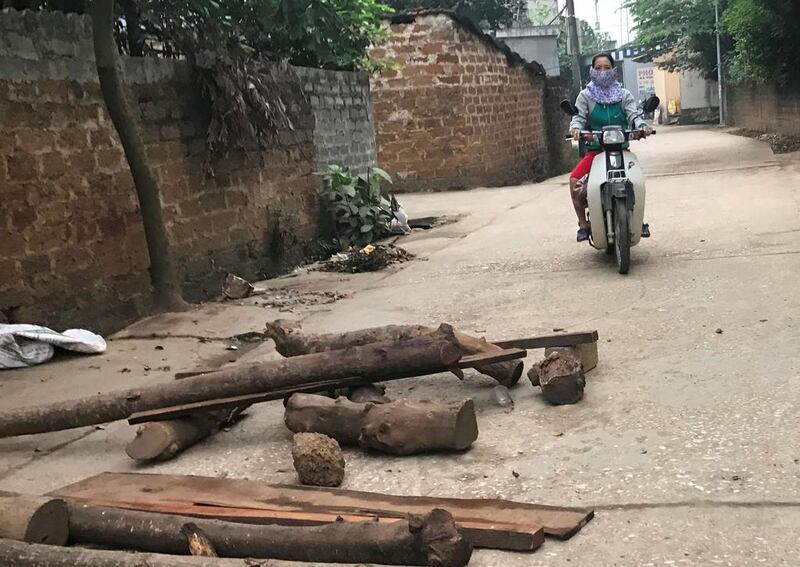HANOI // A group of Vietnamese farmers who took more than a dozen police and officials hostage over a land dispute said on Thursday they would resist any rescue attempt by the authorities and have sealed off their village.
The incident began on Saturday in My Duc, a suburban district of Hanoi, when authorities clashed with villagers who alleged their land had been illegally seized for sale by a military-owned telecoms firm.
The crisis is a rare act of defiance in the authoritarian communist nation where anger against official corruption and land seizures simmers but usually meets a forceful response from police.
Local residents said they had sealed off their village with barricades made from logs, sandbags and bricks and had banned any outsiders from entering.
They also made veiled threats to set fire to the house where the hostages are being held if the authorities move in.
One female farmer, who declined to give her name, said the villagers took “preventative” measures on Wednesday after they spotted signs police might be planning a rescue attempt.
“We poured oil around the community house where the men are being kept. We will make our move if the police attack us,” she threatened.
She said the hostages were being treated well and were being fed three meals a day.
A total of 38 policemen and local officials were taken hostage on Saturday.
Three of them escaped successfully while 15 others were released on Monday, Hanoi’s police were quoted on state-controlled media.
“We are still holding 20, including two senior local officials,” the female resident said.
It is not the first time Vietnamese villagers have taken up arms to resist perceived state injustices.
In 2012, a Vietnamese fish farmer used homemade weapons to resist a forced eviction, injuring seven policemen.
The farmer was jailed for five years, but his case became a symbol of growing public dissatisfaction over land rights.
In 2013, a gunman killed a provincial official, before killing himself, in an apparent dispute over land in northern Vietnam.
Vietnam’s government strictly controls freedom of expression and rights to protest but flash points occur.
Media coverage of the incident in My Duc district is limited, with some articles on state media swiftly disappearing soon after they were published online.
Le Luan, a lawyer who went to the village to act as a mediator, said local residents “only want to have dialogues with authorities”.
“It’s hard to tell how the authorities want to solve this case,” he said.
Local police and authorities could not be reached for comment on Thursday.
* Agence France-Presse





